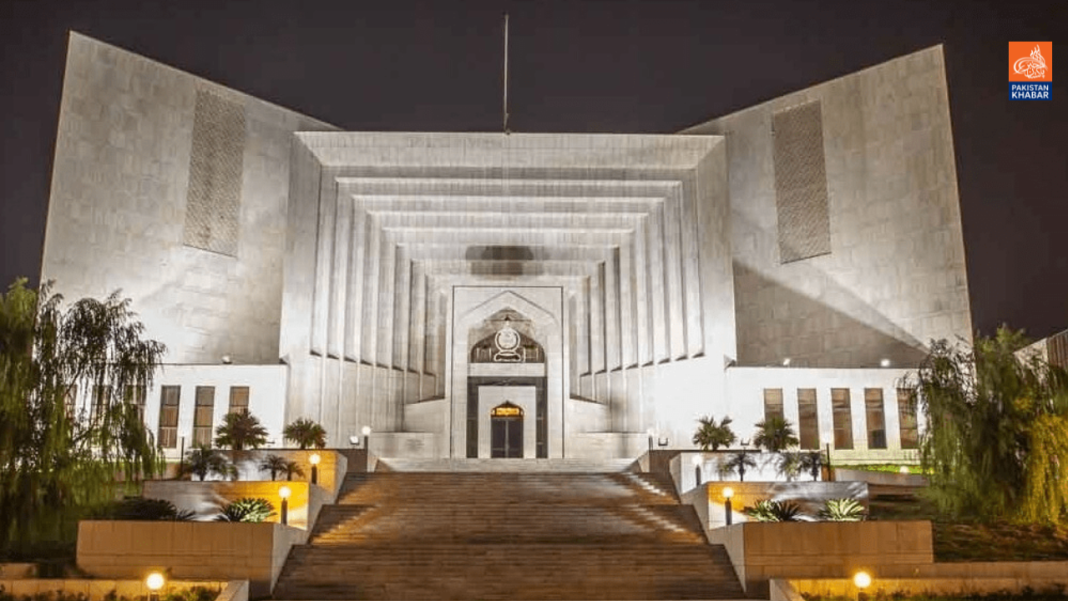The Supreme Court has issued notices to the chief secretary and other respondents in response to an appeal by senior Muttahida Qaumi Movement-Pakistan (MQM-P) leader against a Sindh High Court (SHC) decision, which dismissed his petition regarding the issuance of domiciles and permanent residence certificates (PRCs) to non-residents in Karachi.
A division bench of the apex court has also notified the provincial law officer for a hearing date to be determined later. The court decided that a larger Supreme Court bench would hear the matter.
MQM-P’s Khawaja Izhar-ul-Hasan filed the appeal after the SHC rejected his petition in May last year.
The two-judge Supreme Court bench, comprising Justice Mohammad Ali Mazhar and Justice Irfan Saadat Khan, took up the case.
The apex court has issued notices to the chief secretary and others regarding Khawaja Izhar’s plea against the SHC’s dismissal of his petition.
According to the written order issued on Monday, the petitioner challenged the SHC’s decision, noting that the chief secretary had already formed a Divisional Scrutiny Committee and Sindh PRC and Domicile Appellate Committee in Karachi to handle applications related to violations of relevant laws.
The petitioner pointed out a page from the paper-book containing a notification dated July 9, 2020, indicating that an additional chief secretary had created a committee with specific terms of reference, instructing the committee to complete its task within 30 days. The petitioner argued that no substantial inquiry was conducted within that time frame; instead, after two years and 10 months, the committee submitted a report for only four districts, which the SHC did not consider when dismissing the petition.
The Supreme Court’s order stated that the points raised require consideration and issued notices to the respondents and the Advocate General Sindh under Order XXVII-A of the Code of Civil Procedure, 1908. The case will be scheduled in the next session before a three-member bench.
Khawaja Izhar, along with other party leaders, had petitioned the SHC in May 2019, arguing that domiciles and PRCs had been issued to applicants without following proper procedures, such as examining oral or documentary evidence and verifying the birth certificates of the applicants or their parents or grandparents.
The petitioners, citing the chief secretary, Karachi commissioner, deputy commissioners, and others as respondents, claimed that non-residents had obtained government jobs and university admissions under the urban quota using fake domiciles and PRCs, thereby depriving Karachi citizens of these opportunities.
In May last year, the SHC dismissed the petition, primarily on the grounds that committees had already been established to address complaints regarding the issuance of PRCs and domiciles in violation of the Sindh PRC Rules, 1971, Pakistan Citizenship Act, 1951, and Pakistan Citizenship Rules, 1952. These committees were functional, and aggrieved individuals could approach them for redress.




